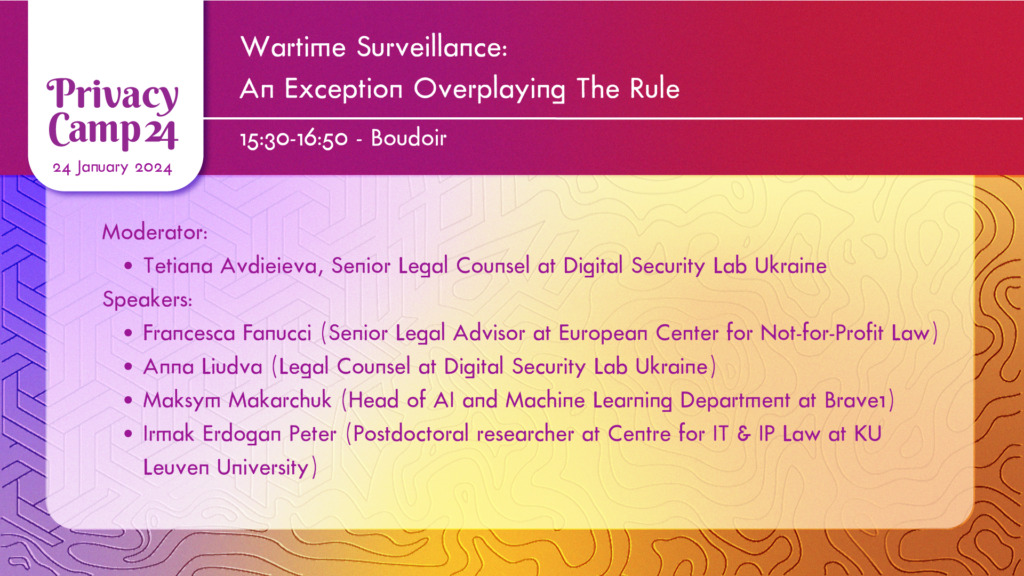
The Russian full-scale invasion of Ukraine put the entire country on military trail, causing the significant and rather rapid change in the type and nature of the surveillance technologies deployed. PrivacyCamp24 might serve as a perfect opportunity to discuss newly-emerged practices of using AI-driven surveillance tools during wartime based on the 2 years of experience within active armed conflict. Particularly, there was reconsideration of many systems primarily designed for civilian use and their adjustment to military purposes, as well as resort to new, sometimes infamous technologies suspied in human rights breaches. This, in turn, had various legal and societal implications, often being described as leading to discriminatory treatment, inequalities and injustices. Whether such consequences indeed took place and how dangerous repercussions can be mitigated? Whether these unfavorable consequences were duly balanced against the pressing need to safeguard national security? Whether some particularly dangerous technologies will migrate to the peacetime after the end of the armed conflict, especially if they are not limited purely to the martial law period?
These and many other outstanding issues can be discussed during the panel uniting the representatives of Ukrainian and international civil society, academia and State authorities.
The findings can be of a particular use for other conflict affected regions which are struggling with the decisions to use or not to use AI-driven surveillance tools, what regulatory framework might be appropriate and how to organize an effective and safe transition period with the use of such tools, when the armed conflict is over. During the panel DSLU also aims at engaging the audience and collecting the feedback about the regional experience of applying AI-driven surveillance, the impact of the Russian full-scale invasion of Ukraine on the foreign surveillance tech markets and practices of resorting to the intrusive surveillance and tracking tools.
Moderator:
- Tetiana Avdieieva, Senior Legal Counsel at Digital Security Lab Ukraine
Speakers:
- Francesca Fanucci (Senior Legal Advisor at European Center for Not-for-Profit Law)
- Anna Liudva (Legal Counsel at Digital Security Lab Ukraine)
- Maksym Makarchuk (Head of AI and Machine Learning Department at Brave1)
- Irmak Erdogan Peter (Postdoctoral researcher at Centre for IT & IP Law at KU Leuven University)
